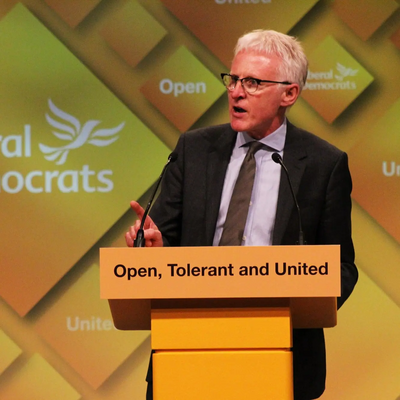It is time to see spending on mental health as an investment not a cost

On a recent Question Time there was an excellent debate on the future funding of the NHS and social care. Norman Lamb, the former Care Minister and Lib Dem MP made a passionate plea for greater investment in the NHS and in particular on mental health.
Tory MP, Jacob Rees Mogg, unsurprisingly, countered that the UK cannot pay more tax. Even the usually more Conservative Julia Hartley Brewer nodded in agreement when Lamb outlined how little we spend on health as a proportion of GDP, which by the way is less than other European countries including Portugal.
While Lamb focused on the human cost of a lack of investment in mental health including on his own family, Rees Mogg's attitude was totally oblivious to the impact of not spending more. It appeared as if Rees Mogg was finishing an A Level Economics test, not appearing on a national TV programme where human beings with real problems were watching as he regurgitated historical tax take percentages.
From the family who loses the main bread winner to suicide and then cannot claim on life insurance, to the child who has waited three years for a diagnosis for autism, there is a massive human cost for failing to invest in mental health. Luckily for Rees Mogg he does not have to travel 300 miles each way to see his children every weekend in hospital as some parents have to.
I have been honest before about my own experience of mental health issues. Following a breakdown in 2014, I spent £4,000 on private treatment as there were no options in urgent care on the NHS for me other than sectioning. I have recovered and gone on to pay back this investment many times over in taxes to Her Majesty's Treasury. Had I ended up out of work for an extended period I would have cost the Exchequer not just in the lost taxes but also through benefit payments. My case is just one of many but shows how investing in mental health can have big benefits for society.
It is estimated that mental health causes 70 million sick days a year in the UK, which is a staggering statistic. Other research has quoted the cost of replacing people on sick leave with mental health problems at £2.4billion a year. It is the leading cause of absence in the workplace.
We have to be realistic that it is unlikely we can eliminate mental health issues completely. However unlike Jacob Rees Mogg, we have to start seeing spending on mental health as an investment, in people and their families and the economy.
Only last week, it was revealed that 73 areas are cutting the amount of money being allocated to mental health. An abject failure to deliver on a promise made by the government to devote a higher proportion of spending by CCGs on mental health.
If the only way to meet that promise is to pay more tax then I for one am happy to pay towards it. For not everyone has the £4,000 that turned my life around.
* Chris Key is dad of two girls, multilingual and internationalist. Lib Dem member in Twickenham who likes holding local council and MPs to account.
Comments on It is time to see spending on mental health as an investment not a cost